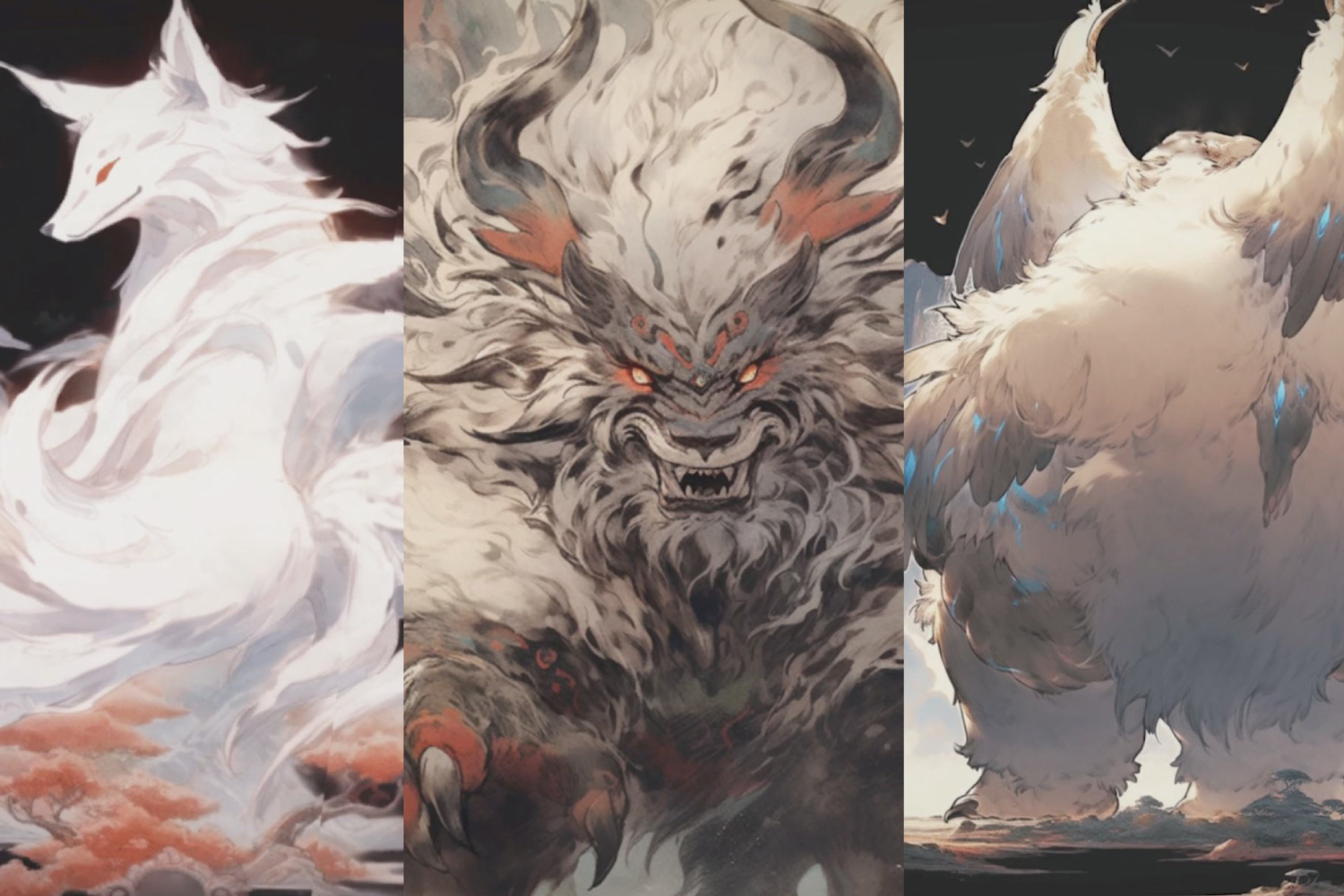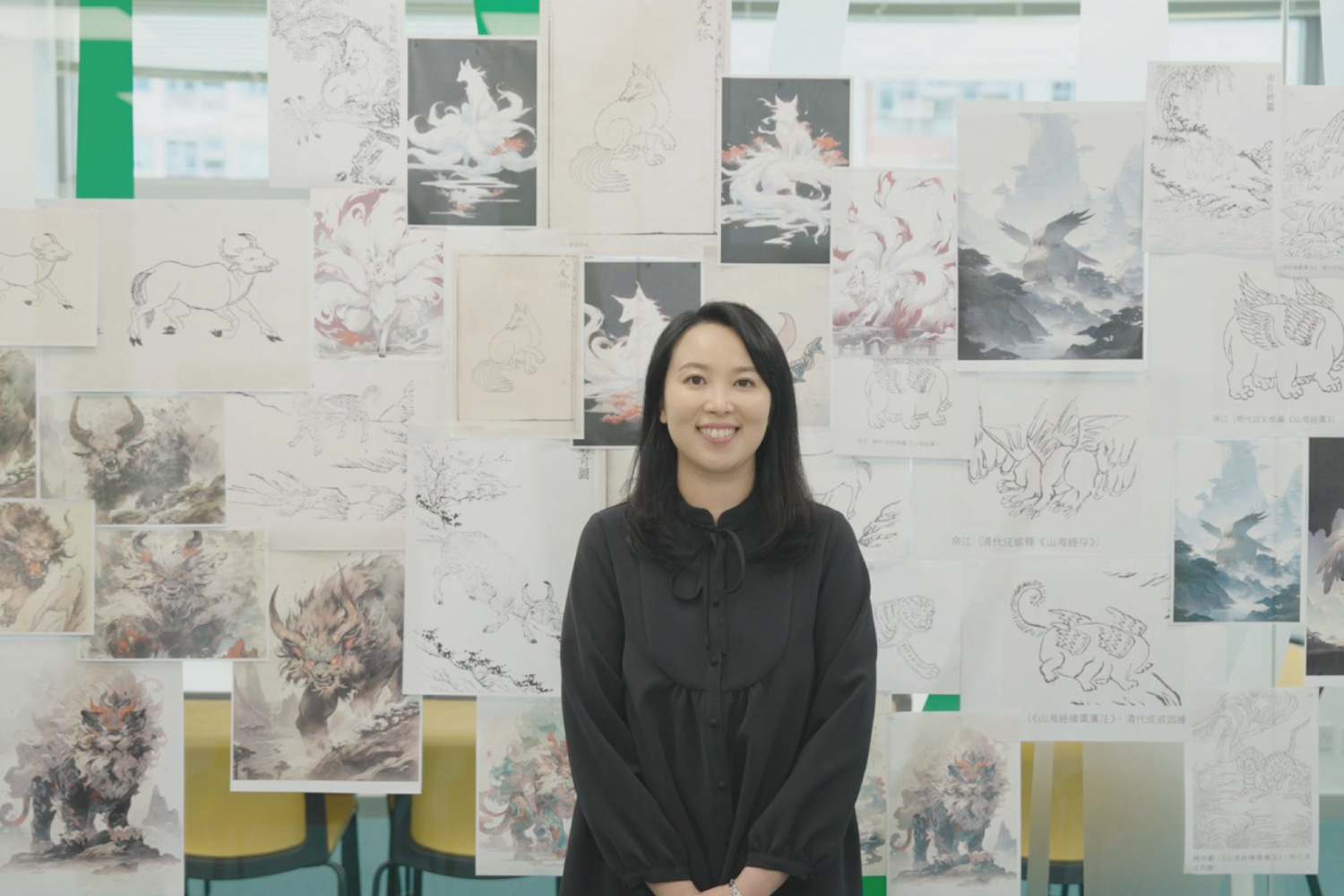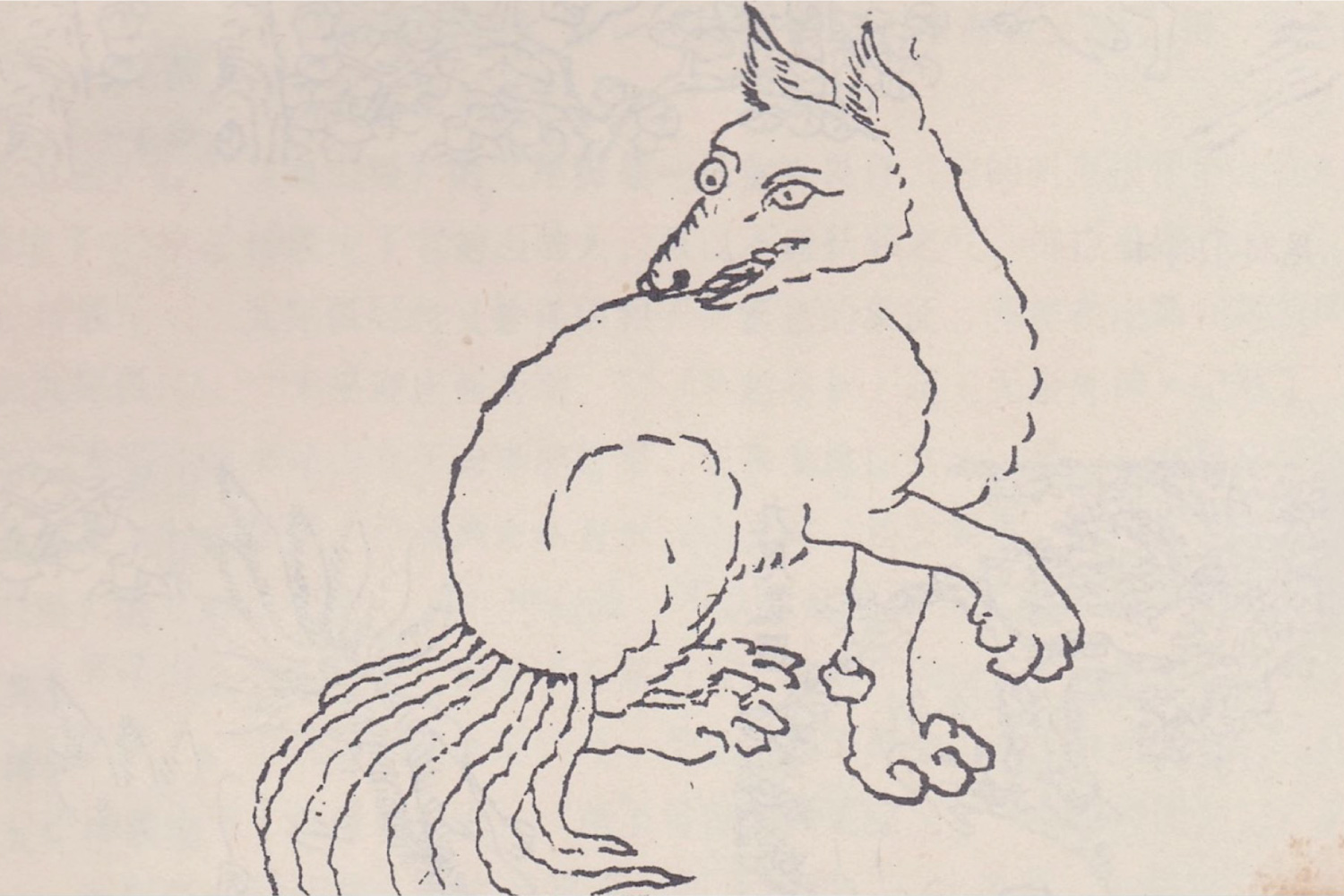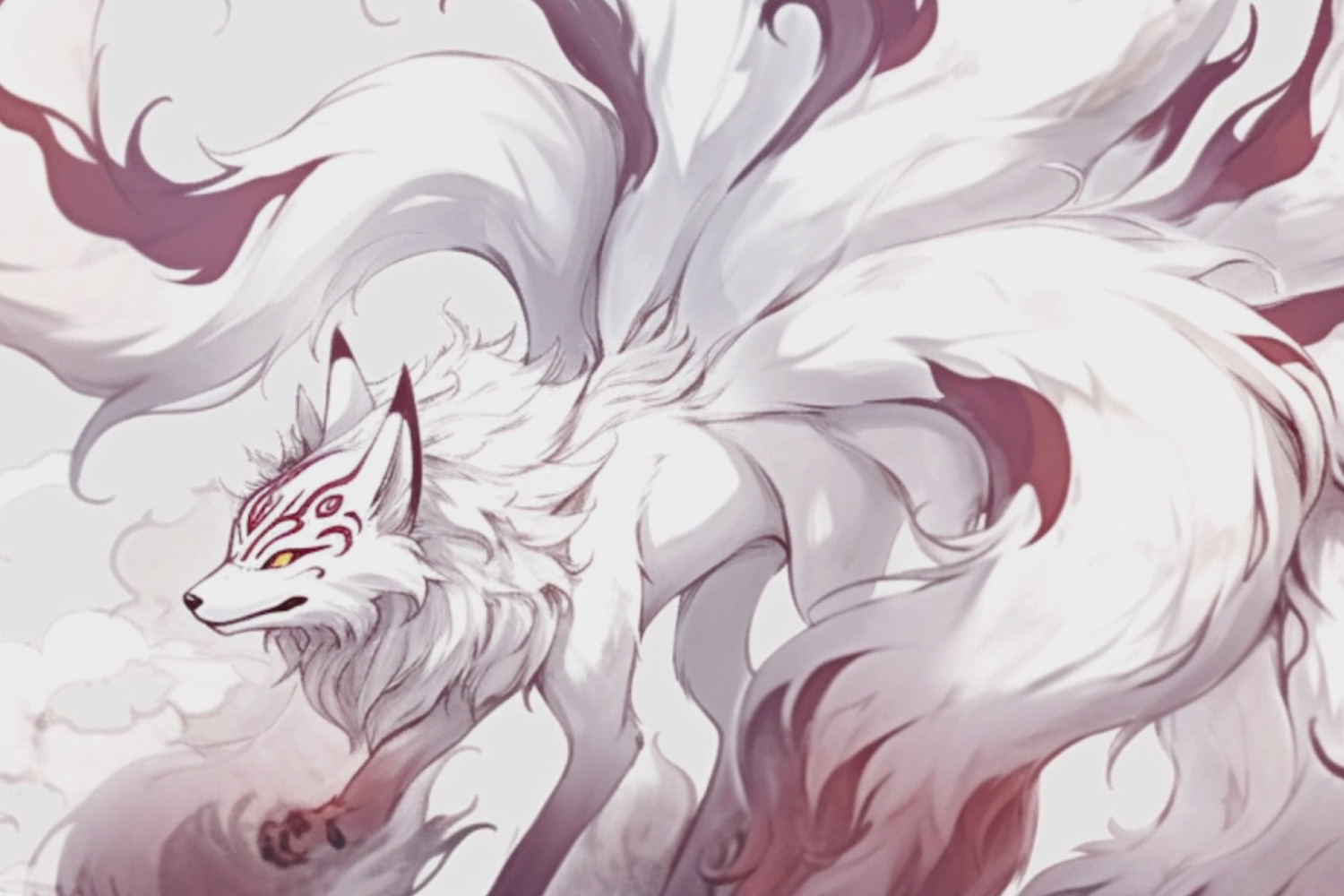Chinese mythology plays an important role in Chinese culture. In the digital age, it has become a medium connecting traditional culture with the future, and bridging China with the rest of the world. The Research Institute for Digital Culture and Humanities (RIDCH) of Hong Kong Metropolitan University (HKMU) initiated a research project to explore how mythical creatures in Chinese mythology, folklore and legends, such as Qiongqi, Dijiang, and Nine-tailed Fox, have been presented to the public in brand-new ways through digitisation, and to open up new directions in the study of Chinese mythology.
Dr Kaby Kung Wing-sze, Director of RIDCH, points out that academic research often intersects with everyday life and that the “Chinese Mythology in the Digital Age” project originated from the research team’s observations of popular culture. “These days, we often see ferocious beasts in Chinese online novels, TV series, and even Hollywood movies. In fact, they originated from Chinese mythical creatures,” she said. “Chinese mythology, once forgotten, has been gradually revived in the digital age, which is worthy of further exploration.”
Dr Kung added that through the application of interdisciplinary research methods, the Institute aims to compare the images of ancient and modern Chinese mythology to examine how different media in the digital age incorporate traditional Chinese mythology and integrate it into our daily lives, thus exploring new directions in the study of Chinese mythology and building a community of scholars. “More importantly, our Institute aims to enhance students' understanding and recognition of traditional Chinese culture and cultivate a sense of creativity,” said Dr Kung. “We hope to nurture talent with multicultural perspectives and a cross-media vision for Hong Kong and promote knowledge exchange and transfer.” On behalf of the Institute, Dr Kung expressed her heartfelt gratitude to the Sin Wai Kin Foundation for its generous support, which enabled the commencement of the research project.
The Institute previously organised an inaugural seminar for the project, featuring Mr Ken Liu, an acclaimed writer, who has won numerous international awards for science fiction, and Prof. Mingwei Song, a distinguished scholar and critic of modern Chinese literature, from the Department of East Asian Languages and Cultures, Wellesley College, United States. The seminar delved into the profound impact of science fiction narration and mythical storytelling on shaping human culture and values, providing valuable insights into the interrelationship between mythology and fiction.
Part of the School of Arts and Social Sciences, RIDCH aims to address and explore the development of, and opportunities from, digital culture and humanities, and to develop it as a related teaching area. The Institute regularly organises a variety of public talks, seminars and academic activities to explore issues in digital culture and humanities.





















